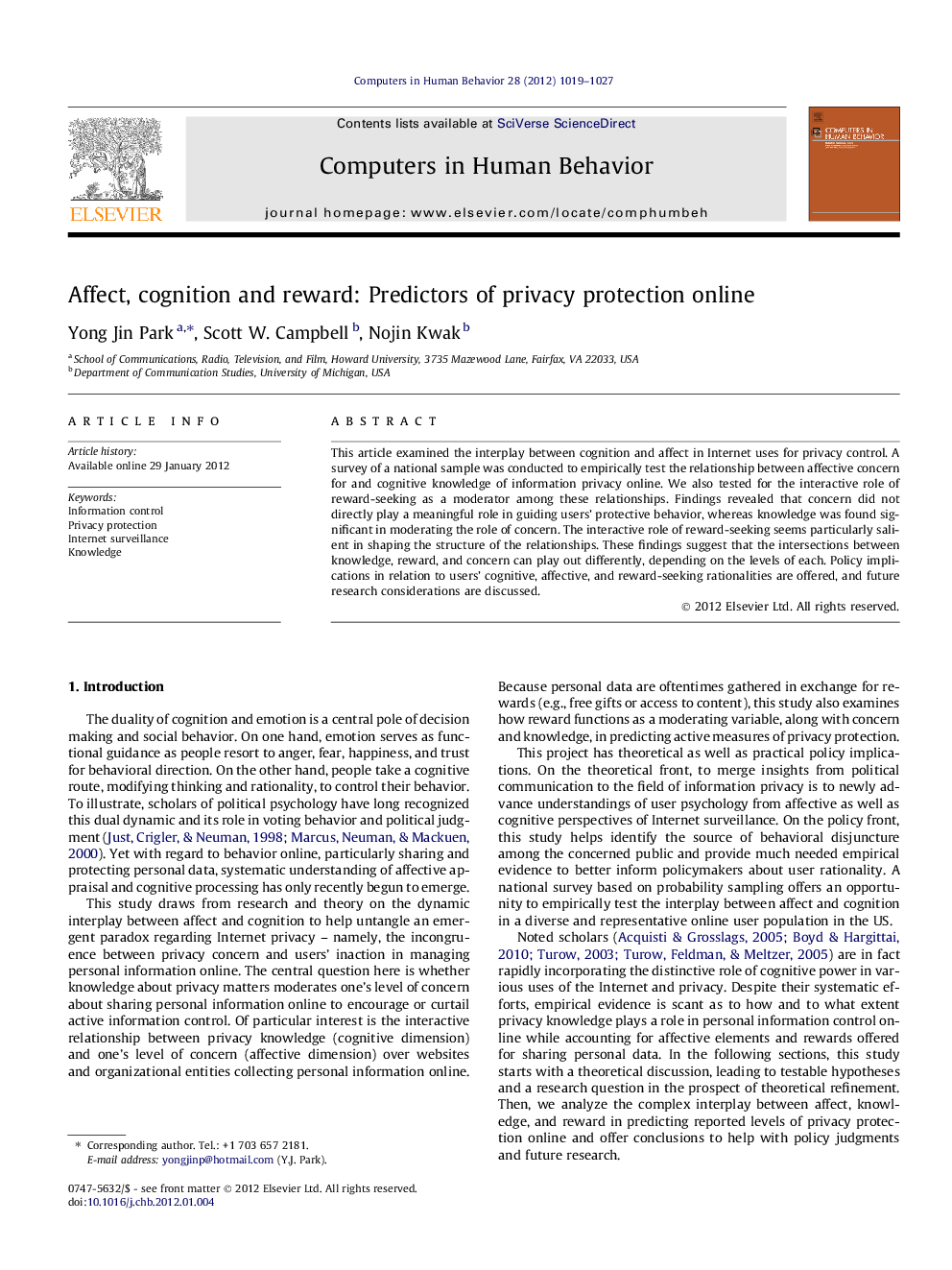| Article ID | Journal | Published Year | Pages | File Type |
|---|---|---|---|---|
| 351359 | Computers in Human Behavior | 2012 | 9 Pages |
This article examined the interplay between cognition and affect in Internet uses for privacy control. A survey of a national sample was conducted to empirically test the relationship between affective concern for and cognitive knowledge of information privacy online. We also tested for the interactive role of reward-seeking as a moderator among these relationships. Findings revealed that concern did not directly play a meaningful role in guiding users’ protective behavior, whereas knowledge was found significant in moderating the role of concern. The interactive role of reward-seeking seems particularly salient in shaping the structure of the relationships. These findings suggest that the intersections between knowledge, reward, and concern can play out differently, depending on the levels of each. Policy implications in relation to users’ cognitive, affective, and reward-seeking rationalities are offered, and future research considerations are discussed.
► Interplay between knowledge, concern, and reward for privacy control is examined. ► Concern is highly limited in guiding protective behavior. ► But knowledge is the most significant in moderating the concern. ► Reward is found salient in shaping the relationships between knowledge and concern.
